Behind the Scenes: A Joint Journey
Welcome to the first episode on Linderson Creation’s podcast, Dear Writer. Though the collaborative writing scene is growing slowly, it is still a unique approach to writing a book. In this collaborative writing interview, Dan (Sarah’s husband) plays host, and the three of us have a great conversation about what makes collaborative writing challenging, unique, and fun. Have a listen and/or read through the transcript below.
A special thanks to Dan for his time in helping us to create this podcast episode. Dan has his own film photography blog. To view some great shots and learn about the lost art of film photography, visit his site: Going Lomo.
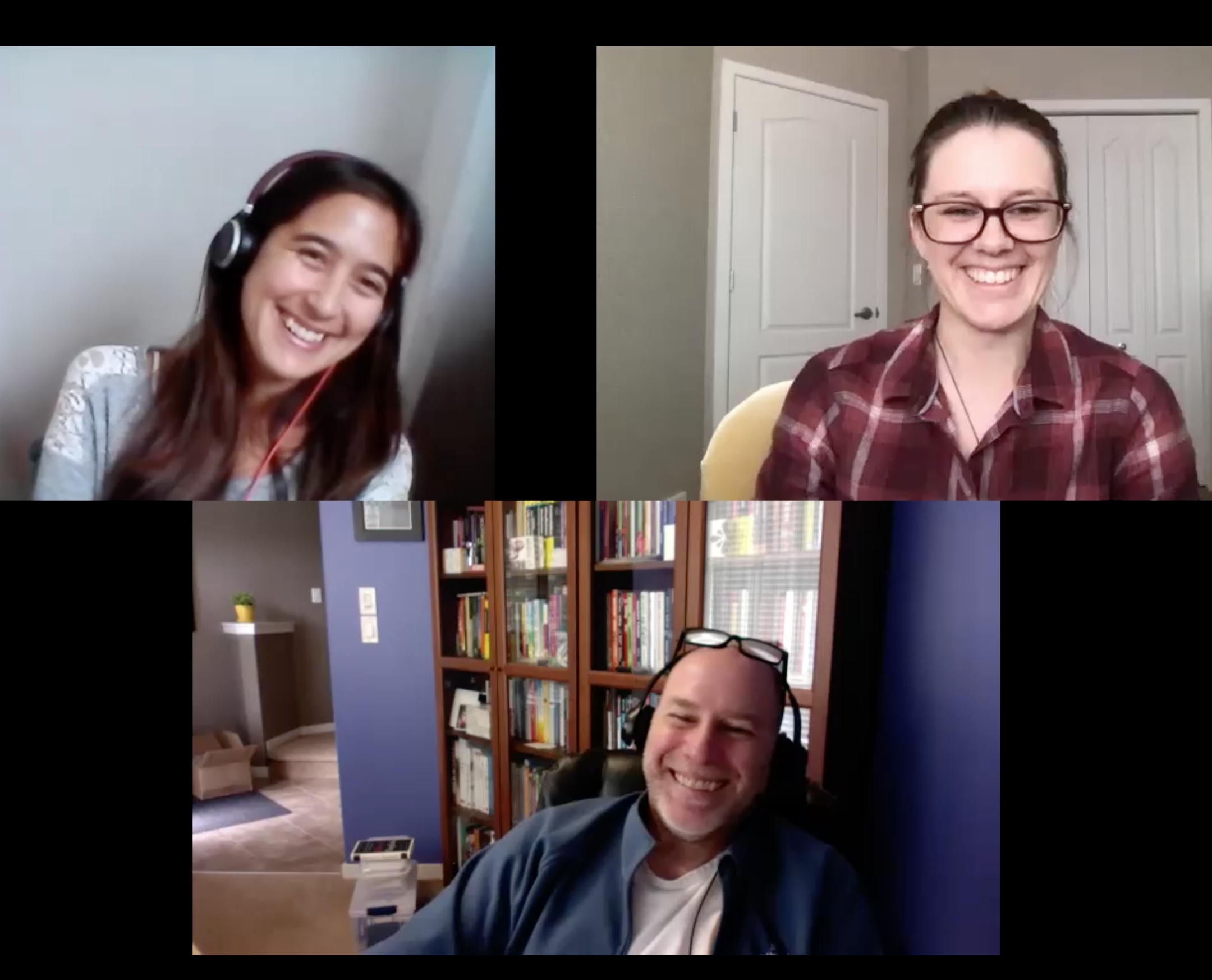
Transcript
[music opening]
Dan: Hello, welcome, I’m Dan Tinaburri, and I’m here with two authors, to talk about their collaborative writing process, so I will get them to introduce themselves, and we’ll talk about the ins and outs of writing with a collaborative partner. So Ashley, why don’t you introduce yourself?
Ashley: Sure! Hey everyone. I’m Ashley Lindsay, one of the writers on our blog Linderson Creations—very exciting. So I am a scientist by day, I work at the university of Auckland doing research, and by night I’m an aspiring writer.
Dan: Awesome, thank you. Welcome. Sarah, tell us a bit about yourself.
Sarah: Hi, so I’m Sarah, I’m the other half of Linderson Creations, and I’m an aspiring author by day obviously as well, and, I also study at the moment to try and get my nursing registration in Canada. I was a registered nurse in New Zealand before moving over here to be with my husband Dan, who’s hosting the interview.
Dan: Yes. So, I know the two of you have been writing collaboratively for quite a long time, I’m curious what made you decide to do that? How did you get started writing together?
[Awkward pause followed by nervous laughter]
Sarah: OK, I’ll start. So, we started writing together when we were in school. When we first met, we found out coincidentally that each of us were sort of writing our own novels, I know that I was sort of failing quite…quite badly at it. [laughs]. Ashley’s might have been a bit better than mine…but then we got set an assignment by one of our teacher’s that caused us to start writing collaboratively together, and we went from there.
Ashley: Yup, that’s pretty much what happened. But yeah it’s been…I guess it’s sort of an interesting way to start out writing, I suppose, collaboratively. But I feel like, it’s sort of, stuck I guess? And I’m quite used to it now, which is good. I dunno. I enjoy it. Lots of ideas and things to bounce off each other.
Dan: Well obviously the two of you must have um…must love it because you’ve been doing it for so long, so I’m curious, what is it that you love about writing together? Like, what’s your favorite part about writing collaboratively?
Ashley: The first thing is probably there’s like an added motivation. Which is really great, it’s quite hard to motivate yourself when you’re like, alone. But having another person it’s suddenly a whole lot easier to write. And probably the other thing is just having another person to share ideas with and come up with ideas together. So you end up fostering quite a good conversation about your book. And you know, ins and outs of what’s going to happen.
Sarah: Yeah I would agree with that. I think also the encouragement of working together.
Ashley: [In background] Yes.
Sarah: We have quite a safe space where we can sort of learn and grow in our writing without that fear of judgement. But, also the two minds being better than one thing is definitely true, because we tend to brainstorm together and if someone’s sort of flat on ideas then we will come up with something together or the other person might have a…an idea to solve that issue…whatever issues that we encounter.
Ashley: Another thing is books get written much faster, with two people! [Laughs]
Sarah: [Also laughing] Yeah. Half the work!
Ashley: Which is very handy. Makes you feel like you’re making more progress!
Dan: So, I totally get the motivation part and definitely great to have someone to hold you accountable, so that you actually want to write. And I totally understand the brainstorming component, right? Like it is easier to come up with ideas when you can bounce them off someone. But, there are also challenges with writing collaboratively. I know for myself, I don’t like the idea of writing with someone. I find that very challenging. So, uh…do you have any challenges with collaborating together? Or…and if you do how do you overcome them?
Sarah: I think probably the most challenging part is occasionally we’re not 100% on the same page, it doesn’t happen very often, but from time to time we’ve got some different ideas and…you know the other thing is editing. When sometimes…I’m sort of editing Ashley’s work, a sentence will come out that seems really strange to me. But, when I look into it I realize it’s just her style versus my style. So it can be really hard to work out which way is actually the best from time to time.
Ashley: I definitely agree with that. Definitely something that is something you work through and what not. On more like a practical level I find that because we plan our chapters and leave quite a bit of wiggle room within them, one of the hardest things for me is if Sarah’s ahead or I’m ahead, not really knowing what creative license has been taken like before your chapter or after your chapter. So you’re kind of guessing. You’re like, has Sarah like made this more dramatic, less dramatic. Has something additional happened that I need to sort of address, later on? So it’s probably another thing I find a little bit difficult. And also, obviously like she’s in Canada, I’m in New Zealand so like scheduling is sometimes kind of difficult. When we are able to write slash get writing done sometimes they obviously don’t coincide well. But other than that…we seem to work through things mostly.
Sarah: Yeah. I’m forever bugging Ashley like, in the middle of the night, “Oh, by the way!” [Laughs]. I hope you’ve got your phone on silent…
Ashley: Yeah, I do now, I do now. I have a friend in the UK at the moment who also has their whole Corona Virus thing. So between you and him I have to put it on silent because I wake up and there’s like twenty-seven messages. I’m like, oh my god! … It’s OK.
Dan: So, I’m curious. Sarah you had mentioned differing styles. And sometimes it’s trying to understand like, you want to say something one way, but you know Ashley might have a different way of saying the exact same thing. So, how do you cope with that? How do you merge those styles so that you know, from a reader’s perspective, it reads seamlessly and it’s not you know, choppy and jumping back and forth between those styles?
Sarah: I think it’s really…like you’ve got your individual styles, but then, you have an overview of the project as well. And the project…when you do the editing, it merges into its own style. So that’s one of the things is that you have to remember that your vision for the book isn’t an individual vision. It’s a joint vision between the two of you, so you’ve got to be really flexible and think, what is going to work best? And usually, if you negotiate, you can kind of work through any issues. But as for the styles as well, like I try and be aware of my own style. If something’s grammatically wrong, you know, I’ll change it. But then if it’s sort of a question, then it comes down to character. Because we do have our separate characters, and if it’s something in Ashley’s characters [chapters] then I’ll try to leave it, because it’s more true to…sort of her characters versus mine, I’ll generally, I’ll be like “oh, that’s not like them,” and then I’ll just quickly rephrase something, or…
Dan: So, do you find it easier—because I know that your novels are being written from the perspectives of multiple characters, so do you think that that’s easier to accommodate the different styles? Because then it can just be attributed to that character.
Sarah: It is a little bit easier, but you know we have worked together on characters before, and we still, like I don’t think we’ve really had too much issues with the characters that we’ve done jointly, either though…
Ashley: No, I don’t…I don’t think so. I think our styles have also, merged a little bit as well, which helps. It’s not as…they’re not like too totally different writing styles. They’re like a little bit similar probably, because we’ve evolved writing together, so it’s not massive glaring issues with style. I don’t think, anyways.
Sarah: No. I don’t think…I think that’s probably true, you know like, we’ve been writing together fifteen years now so, and you know we were very young when we started, so they have kind of merged to an extent. But you know like I think…if you do come up with an issue, we query it with each other if it’s something that’s gonna make a big difference to it, or that we’ve had a real issue with. Like we’re constantly flicking messages back and forth, going like, “this is what I’ve done to that.” [Laughs]. “Is this OK?”
Ashley: We’re usually pretty open as well, about if people want to change it. We don’t take offence to it either. You can change it, and if the next person gets to editing and like it doesn’t fit, they like, kind of, slowly ah…modify it just a tiny bit, and then it kind of merges anyways.
Dan: And so do you ever consult before making any of those changes? Or is it a case of you know, you ah… you pick up the next chapter and you go, “Oh my goodness! A lot has changed!” Like are you surprised by the changes?
Ashley: Usually if changes…if it’s like minor changes, we won’t usually. We’ll just be like “hey, I’m just gonna do this,” and usually it’s fine. But it’s more major changes obviously we then have a discussion. So if it’s just like changing a sentence or two, probably doesn’t matter. And to be honest, we might not actually notice it…cause you come back to it so much later you’re like “did I write that? Did Sarah write that? Ah, I dunno, it sounds fine.”
Dan: [Laughs]
Ashley: Um, but major changes, obviously we will then usually bring it up and like have a proper discussion about whether or not…what changes should be made, if any, and what they should be.
Dan: Right. So I know you guys…you mentioned Ashley that you guys have an outline and you each take on a chapter, do you ever find, that once you’ve completed a chapter and sent it off to the other…you have to wait before that chapter comes back. So does it ever like, you know, interrupt your flow of writing? Does it slow down the process in any way there?
Sarah: We’re usually pretty quick at like giving each other comments on the chapters. And then the outline…the whole outline of the book is already written, so…
Dan: So…no…no pantsing then.
Sarah: If there’s something major that’s gonna happen, sometimes you do have to wait a little bit, because it’s not so much waiting for feedback as waiting for a chapter to be written so that you know like, even though you have the overall outline, those little things can sometimes be big things. And so if you know that you’ve got a big chapter coming up, where a huge [character] decision is made, sometimes it’s better just to wait until you have that rather than having to do like a whole bunch of edits later, which still ends up happening, but…[laughs] at least you can minimize them.
Ashley: Yeah um…we don’t usually have to wait too long for comments back, and generally if we’re going way, way, way off the chapter outline we would have discussed it already anyways. It’s usually more minor things, like these two characters have a random discussion about something that may or may not affect what happens, but it wouldn’t majorly be affecting it, it might just be affecting their attitudes towards it or how they’re feeling about it, or like what their mental state is in the next chapter. And as Sarah was saying, if it’s a massive event, then usually its best to wait because you don’t want to ruin, or have to change how your characters are feeling, but if it’s minor things you can usually either write around it or it doesn’t really affect the chapter too much, like the subsequent one.
Dan: So you mentioned you’re both not only on different continents, but really in different hemispheres. Writing collaboratively from that greater distance…what tools do you use to accomplish this? There’s so many tools that allow you to write at the same time in a document, you know like, if you’re doing a google doc as an example, but I know you don’t do it that way. So what tools do you use and what do you find works best for you?
Sarah: We’re old fashioned. [Laughs]
Ashley: [Also laughs] Yes.
Sarah: We’ve been using Word so long, and because Ashley’s more… you use Windows…
Ashley: Yeah.
Sarah: And I’m a Mac user, so I try not to like, use Pages and stuff because then I have to transfer it to a Word document anyways, and it’s not like a big deal if I write in something else and then change the format, the only problem is that sometimes when you change the format, it mucks stuff around. Which isn’t a big deal if I’m just sending it to Ashley, but if we’re tryna get it ready for like sending it to a publisher, you want to be sure when you’re sending a document to them that it’s exactly as you had just viewed it. Which is another reason why I tend to use Word. Because the publishers do tend to ask for like a Word document. But I have started—I think I did a blog on it like last week—I transferred like a whole bunch of our writing into Scrivener, just to see what it would look like as an ebook, which was quite enlightening. And I think it would be good for like editing, cause you can kind of skip between parts, which I get really frustrated on Word, where I’m scrolling for pages and waiting for it to load [laughs]. But still I can’t really like get my mind into like the mindset of working from a different format. It just looks weird and then I can’t focus, so…
Dan: [Laughs]
Ashley: And we um, we also tend to, we write each chapter like in a separate document as well, so our book, when we have it together is each chapter is separate, and then eventually when the time comes, we’ll combine them. So it one makes editing a lot easier and two if you make a quick change you can just like flick the document to Sarah, and it’s not buried in some massive like two hundred and fifty page document, like “It’s page twenty seven!”
Sarah: [Laughs]. Yeah…
Ashley: Um Yeah. [Laughs]
Dan: Then I…I…assume you also do a lot of texting back and forth to communicate.
Sarah: [Giggles in background]
Ashley: Yes. And emailing.
Sarah: Ya, every day. And sometimes I feel like, I’m bugging Ashley too much. Because that with the different time zones, and then also the fact that I’m studying at the moment so I’ll put aside my study for a bit and then I’ll be like, “Oh, lets have a look at this” and then I’ll send something to Ashley and then I’ll be like “oh she’s working…I should probably like…keep it on the down low, sorry Ashley!”
Ashley: That’s OK. Gives me a break from working.
Dan: So how do you um…I come from a theatre background and I’m used to the idea of, you know, there’s a director. And it’s the director’s vision, ultimately, when they’re you know directing a show and putting on a play. But there’s two of you. And so…does one of you take on that director role you know and is in charge of the vision? Or, how do you…how do you give each other sort of equal weight to each other’s ideas? Right?
Ashley: We’ve gotten quite good at really sharing it 50/50. Most of it comes from just having discussions about it. So usually we both have sort of the same idea for the direction we want it to go, they’re not usually like, drastically different or anything. So then it just ends up like having a bit of a discussion about it, and like, we never just outright dismiss someone’s idea because you never know—could be really great, and so we just end up kinda just talking about where we want the book to go, or what we want to happen, and then eventually you sort of end up converging on like what makes the most sense anyways, so we don’t usually need someone just to be like, “yes, no, yes, no, we’re doing this.” Ends up being quite collaborative which is good.
Sarah: Ya, I would say that we’re pretty good at respecting each other’s ideas. But…also like if you’ve kind of got a vision of what you want, and then someone else has like a different vision, you say, OK, well you know, what’s the best part about the vision that you want, and maybe combine it with the other person’s vision, that sometimes you end up with something that’s even cooler than what you had thought, which has happened like more times than what I can count with our book.
Ashley: Yeah.
Sarah: Yeah.
Dan: And do you ever come up with an idea and think, “Oh, I think I’ll keep this one to myself for like a personal project.”
Sarah: Nah, just throw it all in…
Ashley: Especially not in the genre we’re writing.
Sarah: There’s always more ideas out there.
Ashley: Yeah.
Sarah: If you’ve got a good idea, you’ve got to like, act on it I think.
Dan: Do you think…do you ever think that your different personalities get in the way of collaborating?
Ashley: I don’t think so? I’m quite a chill person, so I’m generally not bothered too much by different personalities. I don’t find it a problem. Sarah and I have been friends for so long I’m quite used to…her in general I guess, so nothing really phases me anymore [Laughs].
Sarah: [Laughs] I feel like, I don’t think our personalities really get in the way. Like we are both pretty laid back, although sometimes, I possibly…come off a bit bossy…[laughs]. Ashley’s just like, you know, she’ll be like: “…well, maybe we should consider this” and I’ll be like, “Yeah, you’re probably right. [To self] Like just tone it down a bit!” No, I think…you know, so long as you’re respecting each other and…just trying to be kind to each other and open to each other’s ideas, that usually personality types don’t really get in the way.
Dan: Do you think it’s possible to write collaboratively with anyone? For example could I just pick someone and start to write with them? Or…or did you think you just got lucky when the two of you started writing together?
Ashley: That’s a hard question. I feel like you could make it work with anyone, but it might not…the actual experience might not work out so well for those involved. I think if you’ve got fairly accommodating personalities, and writing styles that aren’t incredibly different, then you probably could, but given that Sarah and I are usually on the same page it definitely helps us with our writing, so I’m not entirely sure about if I just started writing with a random person how that would go.
Sarah: [laughs]. I um, I think you can write with anyone, as long as again you’re open to having a joint vision instead of having like an individual vision. But I think we did get really lucky, like not everyone sort of…just like stumbles into it when they’re like fourteen years old and then continues writing for the next fifteen years and hopefully…much longer. Um, so we have been pretty lucky that way. However I would say that if anyone’s considering it, if they find someone who they think fits them as far as being able to be open to each other and just be like nonjudgmental is really big, and so long as you’re not like turning it into a competition either you can work with anyone I think. I hope. [Laughs]
Dan: And these are some keys to working collaboratively in general, right? That you need to be open to working with the other person. That you really can’t take it personally when they give you feedback. And…you know a lot of us learn how to do that. And I do think that sometimes you meet someone, and you just click with them, and it’s just an easy going relationship and collaboration with them. And sometimes you have to work at it. But I think the other piece in all this is, is also looking at writing styles and how well they fit and merge together, cause… you could very easily you know, get along with someone, and your ideas just are in sync and everything, and then, put those words on the page and it couldn’t be more different. Right? So in some ways, maybe…maybe because you did start collaborating at an early age you have developed as writers together, right? So I guess the question I want to ask is; How do you feel this collaboration has impacted you and helped you to grow as a writer? And a second part to that would be: Do you think you would be where you are as a writer now if you had never met and not collaborated. Do you think you would have developed as far as you have, on your own?
Ashley: OK.
Dan: So, how has it impacted you, and do you think you would…it would have had the same impact if you had never met?
Ashley: OK well, for starters, my writing style is a lot more succinct, I think, than Sarah’s. Sarah’s is quite an elegant style. So…her…writing together has probably helped me for the better, because I will write a little bit more eloquently now, use kind of different words, so that’s good. Um, what was the second part of the question?
Dan: Do you think that you would have developed just as much as a writer if you had not had this collaboration?
Ashley: That is an interesting point for me I think. Because…so I obviously…I’m in academia, so I’ve written two theses at this point. And I write scientifically all the time, and it’s really ah…different to writing creatively. So I think in a creative sense, I wouldn’t be where I am without collaborating with Sarah. But, on my work—flipside—I tend to bring in a little bit of the creative aspect into my scientific writing, which, you know, some people really don’t like. So, I also think that probably my writing would have developed into quite a clinical style had I not been writing collaboratively with Sarah, for so long. So maybe good in the scientific sense…? Definitely good in the creative sense.
Sarah: So I think I’ve probably had the opposite ways in like…because Ashley’s more concise, I’m more and more looking into it and being like, “I’m trying too hard here…that’s not what I want…” and you’ll just read certain words and you’ll be like, “why is that even there?” But at the moment I’m going through our first book trying to get rid of as many attributions as possible, and as they call them ‘swifties’ because they are rampant [laughs]. So I’m trying to streamline my writing a bit more, and I think Ashley’s helped me to do that. And then I would say that, it’s interesting watching each other develop as well though, because often I’ll read a section of work that Ashley’s done, and I’ll be like “Oh wow, she really like, nailed the scenery there.” And it kind of pushes you to look deeper into things, and be with the character and see as the character sees, when you see examples of really beautiful passages that your partner has written, to try and keep up with them. Like, it’s not like a competitive thing exactly, but its…its…just pushes you to be your best. So I definitely think that I would not be where I am with my writing today, had I not met Ashley. I’d probably just still be writing these awful flowery sentences that make no sense. [Laughs]
Dan: So, how many books have you written together so far?
Ashley and Sarah: Three…
Sarah: …And a half.
Everyone: [Laughs]
Ashley: Three and a half. Yeah. Three full ones, and then a half one.
Sarah: Yup.
Ashley: The half one’s planned, like we could finish it, we just haven’t got round to it.
Sarah: Although, I think we need to revise that plan. Because that was a long time ago. [laughs].
Ashley: Yes.
Sarah: I don’t even know where it is anymore. So that one needs a lot of work. It’s kind of more like three and a quarter when you look at it that way.
Ashley: Hmm. That one’s probably going to be quite long. So yeah. Maybe three and a quarter.
Dan: So what does the future hold? Do you have plans to write more than those four collaboratively? Do you have plans to do other projects, like a different series together? Have you even talked about it? [Laughs].
Sarah: We have. So um, the one we’re kind of working on at the moment, is looking like there’s going to be a total of five in the series, and we’ve written three out of the five. I’m not 100% sure, so don’t quote me on that. Could be four, could be five.
Ashley: Yeah, just depends if it fits in one, or it might not.
Sarah: And then we have another series planned, that’s like totally different. And different…like completely different genre, and we figured that we’re probably going to work on that one next, for a bit of a break. But then, I also came up with this idea, not a continuation of the first series that we did, but more like a second-generation series. So that could be in the works. That’s again…a very like…we haven’t talked much about it at all. [Laughs]
Ashley: Like, briefly mentioning it. Like a couple times…”Oh yeah. Sounds good. We can do something like that.”
Sarah: [laughs]. Maybe, once we finish all these things…
Ashley: Yes. Takes a long time. Although shorter, with two people, which is always good.
Dan: [Laughs]. So, as we wrap this up, do you have any tips for people that are considering writing together?
Ashley: Maybe just make sure you know the person fairly well, and you’re comfortable with them giving you feedback. And maybe if you’re not good at handling feedback, I maybe would think again about writing collaboratively, at least at the start. Yeah…it’s sort of what I can think of off the top of my head at the moment.
Dan: Yeah, I guess it’s kind of like a relationship, you’re jumping into a marriage really.
Ashley: Yeah.
Dan: And you don’t want to rush into that.
Ashley: No.
Sarah: I have a few tips. So I would say one, I mean, going on the whole relationship thing, it’s about energy levels. [laughs]. No…um…but I think like you’ve got to have matching dedication to it. If one person is like “oh yeah, I’ll get around to it,” like it can be really frustrating for the other person. But, in saying that, you still do have to be aware of each other’s time limits and stuff and be patient too. Sort of number two would be to…ah damn it. I had it and then it’s gone. [Laughs]
Dan: Maybe you need a collaborative partner to remind you there. [Laughs]
Sarah: No…what was it?
Ashley: I don’t know where you were going with it, so I can’t help you.
Sarah: I know…it was a really good one too. Let’s just say…um…Oh! Oh, I know what it was. Compliment sandwiches. [Laughs]. They talk to you about it in school, but it is really a thing. Lead with a compliment, then input your feedback, and then another compliment to finish off. I do that all the time. “So it’s really good…have you considered…” and then I’ll be like, “it particularly grabbed my attention at this point” at the end.
Ashley: I definitely appreciate that. Academics do not give compliment sandwiches. They are just; “this sucks, rewrite it” and red pen. So trust me…I appreciate it.
Sarah: I also think that as a writer, that you do have to…you do develop a little bit of a thick skin in terms of going into like trying to get books published as well, you know, we’re always pretty upbeat, because these days you don’t even get rejection letters. We got a great one at one point when we were still early on. And it started and it was like, “Dear Richard.” which we had a good laugh about. And I think you do have to have a really positive viewpoint in that way and realize that things aren’t always gonna your way, and you just gotta keep working, and be confident, and just keep trying.
Dan: Well I would say that’s probably a publisher you don’t want to work with if they can’t even proofread their own letters. How do you know that the editor’s gonna proofread your book?
Sarah: I know right?
Everyone: [Laughs]
Ashley: That’s one of my favorite letters of all time.
Dan: Yes. [Laughs]
Ashley: They got the rest of the details correct though. Like cause they specifically, you know, like mentioned our book and stuff in text and everything.
Sarah: Oh yeah I know. It was actually quite a nice rejection letter, asides from the ‘Dear Richard’.
Dan: Was it phrased as a compliment sandwich?
Sarah: [Laughs] Always looking on the bright side!
Everyone: [Laughs]
Dan: So to wrap this up, how about you tell us where people can find you if they want to know more?
Sarah: We have a blog at the website www.lindersoncreations.com, um so you can always visit us there if you have any questions or comments or even if you just want to have a chat, you can reach us on the contact page.
Dan: Great! Thank you. And if you’re still listening, uh I hope that you enjoyed this conversation about collaboration as much as we did, and I hope that you will join us next time. Thank you.









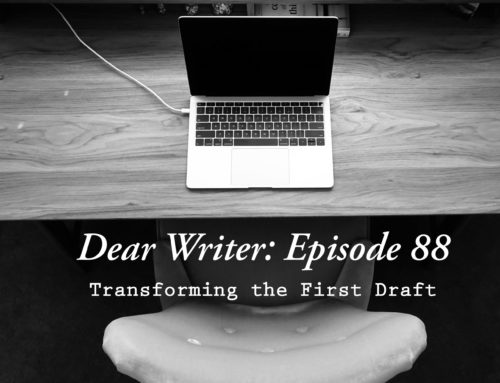
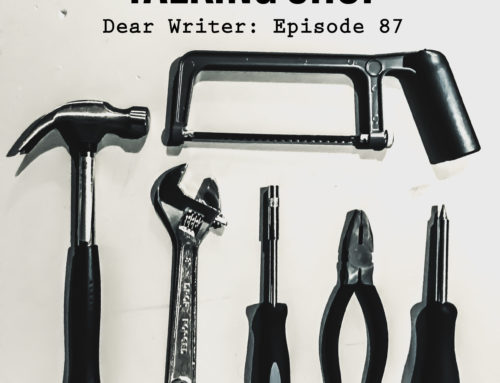

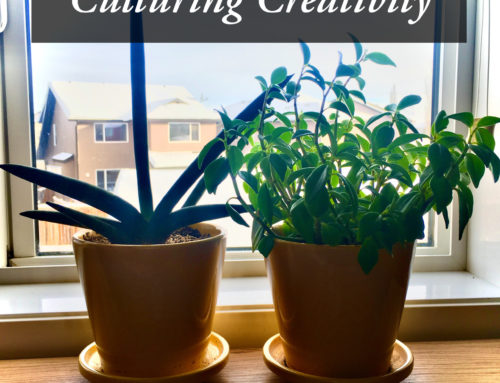

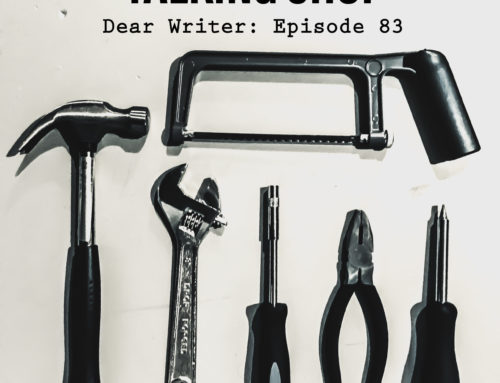


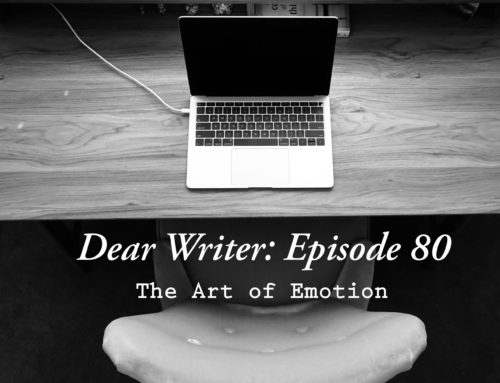
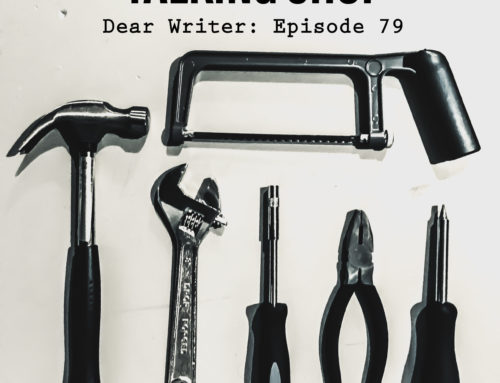
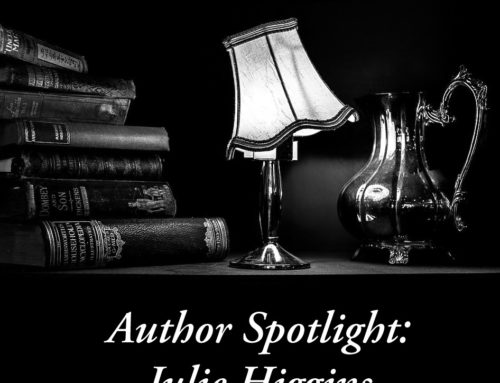
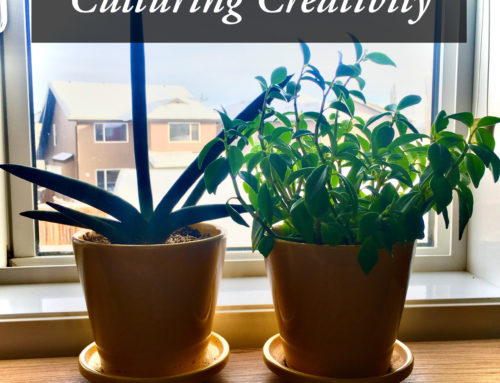
Leave A Comment